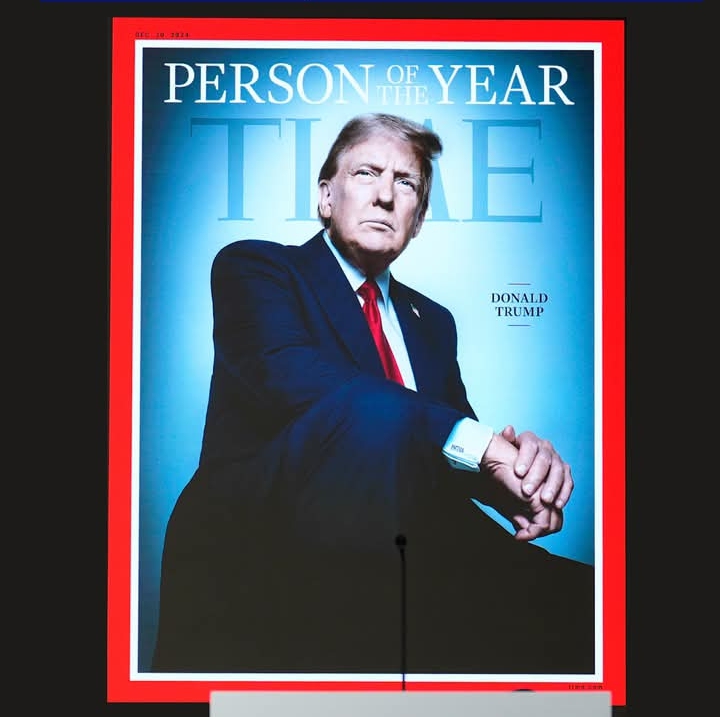U.S. President-elect, Donald Trump has been named TIME Magazine’s Person of the Year for 2024, an award that emphasized his unprecedented influence and enduring presence on the global stage. This marks the second time Trump has earned the distinction, following his initial recognition in 2016 after his unexpected rise to the presidency.
The announcement was made on Wednesday by TIME’s editor-in-chief, Sam Jacobs, who emphasized that Trump’s impact throughout the year made him the clear choice for the honor. “For marshaling a comeback of historic proportions, for driving a once-in-a-generation political realignment, for reshaping the American presidency and altering America’s role in the world, Donald Trump is TIME’S 2024 Person of the Year,” Jacobs wrote in a letter to readers.
Jacobs acknowledged the often difficult process of selecting the individual who has most influenced events—positively or negatively—over the past year. “In many years, that choice is a difficult one. In 2024, it was not,” he added, signaling the profound and widespread reverberations of Trump’s political resurgence.
The Person of the Year designation, a tradition that began in 1927, is awarded to individuals or groups who have significantly shaped global events and dominated news headlines over the past twelve months. Trump joins a storied list of past recipients, which includes cultural icons, global leaders, and activists.
Previous winners ranged from former President Barack Obama to climate change activist Greta Thunberg and Meta CEO Mark Zuckerberg. Last year’s honoree was music and cultural phenomenon Taylor Swift, whose global influence in entertainment and economics made her an undisputed choice.
Trump’s recognition this year reflects his ability to reinsert himself into the center of American and international politics at a time when many had written off his political future. His relentless push for a return to the White House has ignited fierce debate, with supporters hailing him as a symbol of political disruption and opponents decrying his polarizing style and controversial rhetoric.
Trump’s comeback has been marked by a series of calculated moves that have energized his political base and reshaped public discourse in the United States. His 2024 resurgence has driven what TIME referred to as a “political realignment” rarely seen in modern history. Trump’s influence has expanded beyond his core supporters, as his campaign rallies, media dominance, and policy pronouncements continue to set the agenda for both Republicans and Democrats alike.
His nomination also underscores the ongoing transformation of American democracy and leadership. While his critics point to the divisiveness of his rhetoric, Trump’s supporters view him as a figure of unyielding strength, willing to challenge institutions and the political status quo. TIME’s recognition reflects both sides of this debate—acknowledging his role as one of the most consequential political figures of the 21st century.
Trump’s impact is not confined to American politics alone. His influence has been felt across global economies, diplomatic relations, and international conflicts. His stance on trade, immigration, and foreign policy has reshaped America’s role in the world, forcing allies and rivals to recalibrate their positions. From his combative approach to China to his efforts to redefine NATO’s role, Trump has positioned himself as a leader whose decisions resonate far beyond U.S. borders.
For TIME, the Person of the Year title recognizes influence, not necessarily popularity. In Trump’s case, his ability to command headlines, drive political debate, and mobilize millions of supporters has made him an unavoidable force in 2024. Whether admired or criticized, Trump remains a global figure who demands attention.
Trump’s selection comes at a moment of heightened political tension in the United States. As the country moves closer to the 2024 presidential election, his presence looms large over the political landscape. His recognition as TIME’s Person of the Year will likely deepen ongoing debates about leadership, democracy, and America’s future direction.
Critics argue that Trump’s polarizing leadership style has exacerbated divisions within the U.S., while his supporters point to his ability to galvanize voters and challenge entrenched political systems.




